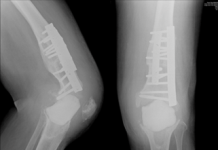Alberto Mantovani presents the contribution of the Istituto Superiore di Sanità (ISS) to the international assessment of endocrine disrupting chemicals (EDC).
The Istituto Superiore di Sanità (ISS), as the reference scientific public body of the Italian Health Ministry and National Health Service, has a major involvement in the regulatory and risk assessment activities on chemicals at international level.
First of all, the ISS experts contribute to the development of new toxicity testing guidelines as well as to the updating of existing guidelines, which is the remit of the programme on guidelines for testing of chemicals of the Organisation for Economic Co-operation and Development (OECD). The OECD Guidelines are accepted internationally as standard methods for safety testing and regularly updated with the assistance of national experts from OECD member countries. The ISS experts, on behalf of Italy as OECD member country, have recently identified a potentially significant gap in the current testing guielines, i.e., the lack of a guideline for testing effects on post-natal, pre- and peripubertal development, thus tackling the emerging issue of adverse effects of chemicals in children; the Italian proposal is currently under debate. OECD provides a specific attention to endocrine disrupting chemicals (EDC) as an emerging topic where many uncertainties still exist. Since more than 10 years, the ad hoc OECD advisory group on testing and assessment of EDC develops and updates a conceptual framework and engages in the validation work of new tests, with special emphasis on in vitro assays on mechanisms and in vitro/in vivo assays to assess EDC effects on environmentaòl biota.
ISS also contributes to restricted group of EU experts supporting the Advisory Group on Environmental Exposure and Impact of EDC within the United Nations Environment Programme (UNEP). The current priority of the UNEP Programme is the production of ocuments for awareness raising among policy makers, including developing Countries or Countries that currently have only a minor involvement in international programmes on chemical safety.
In the European Union, the main fields where ISS toxicologists are involved are the European Chemical Agency (ECHA) and the European Food Safety Authority (EFSA).
Implement the EU legislation
The ECHA’s task is to implement the EU legislation on chemicals for the benefit of human health and the environment as well as for innovation and competitiveness, by fostering the replacement of high-concern chemicals. The current priority of ECHA, indeed, is to identify the sunbstances with high-concern hazards: carcinogens, genotoxicants, reproductive/developmental toxicants, persistent bioaccumulative and toxic or very persistent and very bioaccumulative; in addition, EDC may be identified on a case-by-case basis as substances give rise to an equivalent level of (high) concern, where there is scientific evidence of probable serious effects to human health or the environment. The ISS experts have been remarkably active on EDC at ECHA, e.g., by requesting aditional studies in order to clarify whether the UV-screener octabenzone is an EDC.
EFSA is the first EU authority entirely devoted to risk assessment; due its solid activity, established since 2003, EFSA is taking a spearhead role in the development of risk assessment methods and concepts even beyond the safety of food and feed chains. Accordingly, ISS scientists contributed with qualified and independent expertise to EFSA opinions and deliverables since the very start of the authorities. In particular ISS experts contribute to well-recognized issues such as pesticides and environmental contaminants of foods as well as to less “adverstised”, but nonetheless critical topics such as food contact materials, nano-sized additives and ingredients, substances used in farm animal feeds, etc. Even more important, EFSA is tackling problems of top relevance for the toxicological assessment of emerging hazards, such as EDC; examples are the recent EFSA documents on the assessment of mixtures and on the use of the Adverse Outcome Pathways framework.
Alberto Mantovani, alberto.mantovani@iss.it








